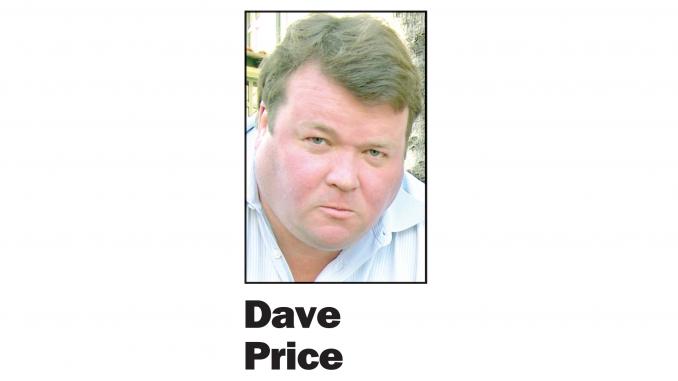
OPINION
BY DAVE PRICE
Daily Post Editor
If we want to reduce the influence of money in local politics, here’s a suggestion.
City Council could have a rule that says any council member who received more than $250 from anyone pushing a particular cause can’t vote on that cause when it comes before council.
The amount could be smaller or larger. I just picked $250 to get the conversation started.
This would have to be a non-binding council policy because previous court decisions appear to prohibit placing legal restrictions like this on elected officials.
Still, that doesn’t mean it couldn’t become a council policy. And if a council member violated the policy, there could be a procedure to call out the violator before a vote, like having the clerk read a statement at the meeting.
In every election, it seems one or more candidates collect a large amount of money from developers who will be bringing projects to council for approval in the future.
The idea is to discourage candidates from accepting donations from people who will have proposals before council.
Obviously, the most ethical response for a council member or candidate is to simply decline money from people who have a proposal headed to council in the future.
Castilleja contributions to Kou
I’m writing this because some residents are questioning whether Palo Alto Councilwoman Lydia Kou, who is running for re-election, should be taking money from people associated with Castilleja School, which is applying for a major expansion.
She took $35,650 in 2016 when she first ran and nearly $4,000 this year.
Kou has said she believes she can’t give her position on Castilleja right now because, when the development comes to council, council members will consider the proposal in a “quasi-judicial” proceeding, where they act as judges as well as council members.
But merely accepting the money is a way of making a statement because she had the option of declining the donations.
Pat Burt, the former council member and mayor who is running this fall, isn’t afraid to speak about Castilleja. Yet one would assume that Burt, a veteran of nine years on the planning commission and eight years of mayor, would be wary of the quasi-judicial concerns Kou has cited.
Same rules for both sides
The irony in this situation abounds. Kou and her supporters are part of the slow-growth crowd that is quick to criticize candidates like Greg Tanaka for accepting donations from developers. But when a slow-growther takes money from people pushing for a development, they blame the newspaper for even pointing out that fact. As far as I’m concerned, people on both sides of the political spectrum should be held to the same standards.
In this case, Kou should return the Castilleja contributions to avoid the appearance of a conflict of interest.
The best approach is not to take money from people who are coming before council. But since that doesn’t always happen, council should have a policy of calling out its members who vote on issues involving their donors. Maybe that will make candidates think twice before accepting those big checks.
Editor Dave Price’s column appears on Mondays. His email address is [email protected].




Kou’s understanding of a ‘quasi-judicial’ proceeding is incorrect. A council member is free to state their opinion about such a hearing, but they’re required to disclose what they’ve said prior to the beginning of the proceeding. She’s not required to give back the money she received, and she’s free to state an opinion about the project. However, she’ll have to disclose that.
I appreciate the Post investigating these contributions. The Weakly doesn’t give both sides of the story and wouldn’t dare touch this issue.
Interesting, but Dave Price is only highlighting certain contributions.
Take a look at Pat Burt’s contributions, just as an example. He received contributions from those against dense housing, from those against cell tower placement too close to homes, from residents wanting RPPs. They have business before the council too. Check Cari Templeton and Raven Malone’s YIMBY and labor union contributions. Check Steven Lee’s labor union contributions. All of these contributors have business coming before council.
Few contributions could be accepted using Dave Price’s logic. Why pick out only a few when just about every contributor has some agenda?
I don’t think anybody got $40,000 from a single cause like Kou did. 40k is much more than the $50 or $100 donations most of the other candidates got.
The great thing about the rule Dave proposed is that it forces candidates to get small donations and not take $35,000 or $40,000 from one donor. Hard to understand why Kou’s supporters would be against this rule.